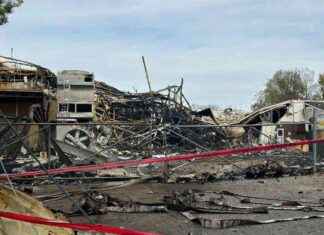Since its first edition back in 1979, the Dakar has mourned 80 deaths among drivers, workers, fans and journalists. A blacklist whose last victim was the Spanish Carles Falcón. The 45-year-old motorcyclist died today from injuries suffered last Sunday, when he fell from his motorcycle during the second stage of the rally. Falcón was repatriated to Spain last Friday on a medical plane, but the damage suffered has proven to be “irreversible.”
With Falcón’s, there are 34 direct participants who have lost their lives in the desert. Direct participants include pilots, co-pilots or mechanics. The Frenchman Patrick Dodin was the first, in the first edition of the Dakar in 1979. He was a motorcyclist, like the vast majority of those who died, including the only Spaniard who had lost his life until yesterday, José Manuel Pérez, in 2005. The pilot from Elche He was to be evacuated to Spain but another accident delayed his return and he ended up dying shortly after arriving at the Alicante Hospital.
In these more than four decades of history, the Dakar Rally has also claimed 46 indirect victims, which include journalists, local residents and spectators. In 1996, the Spaniard Tomás Urpí lost his life in Moroccan territory when he suffered an accident when the vehicle in which he was traveling overturned.
The most tragic edition of the Dakar was in 1986, when a total of seven people lost their lives, two participating motorcyclists and five people traveling in a helicopter, including Thierry Sabine, creator and organizer of the Paris-Dakar Rally.
Last year an Italian spectator died after being hit by a truck that participated in the event. This fan, who was behind a duan and could not be seen by the pilot, was the last fatality to be regretted in the Dakar to date.








